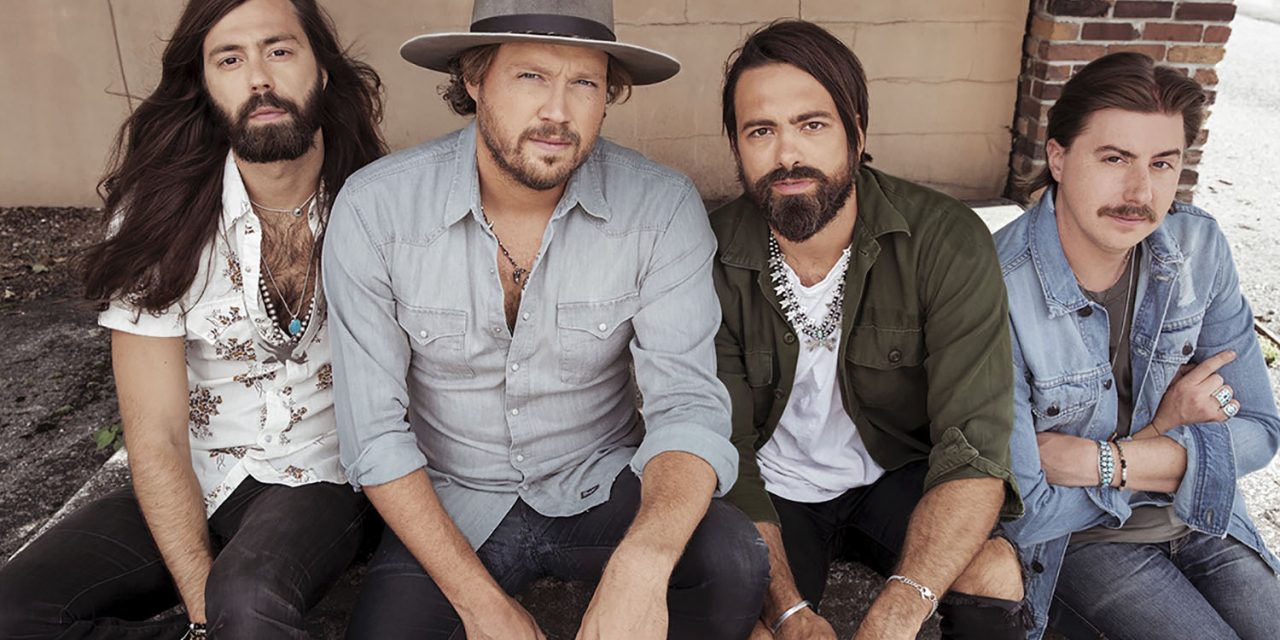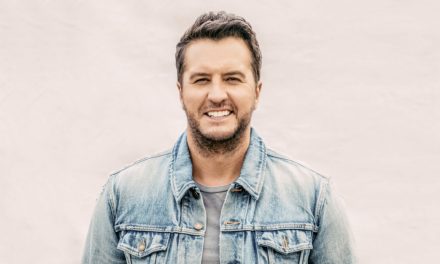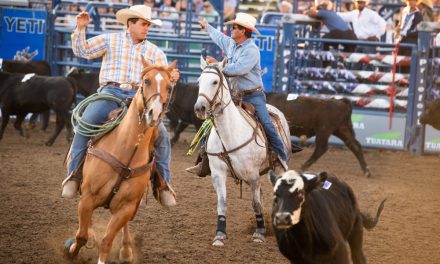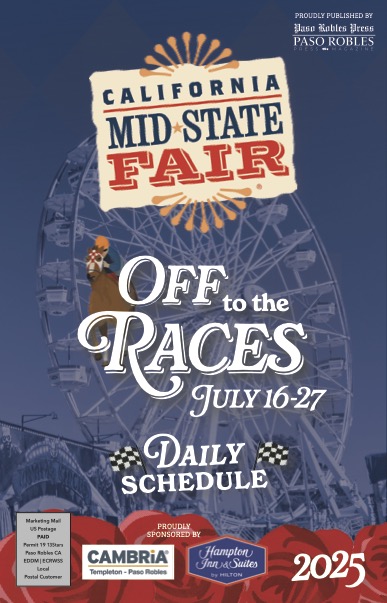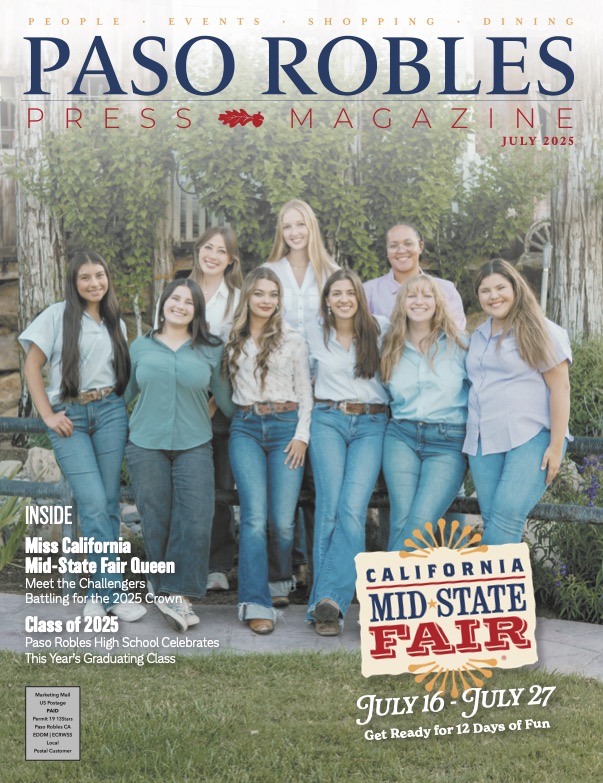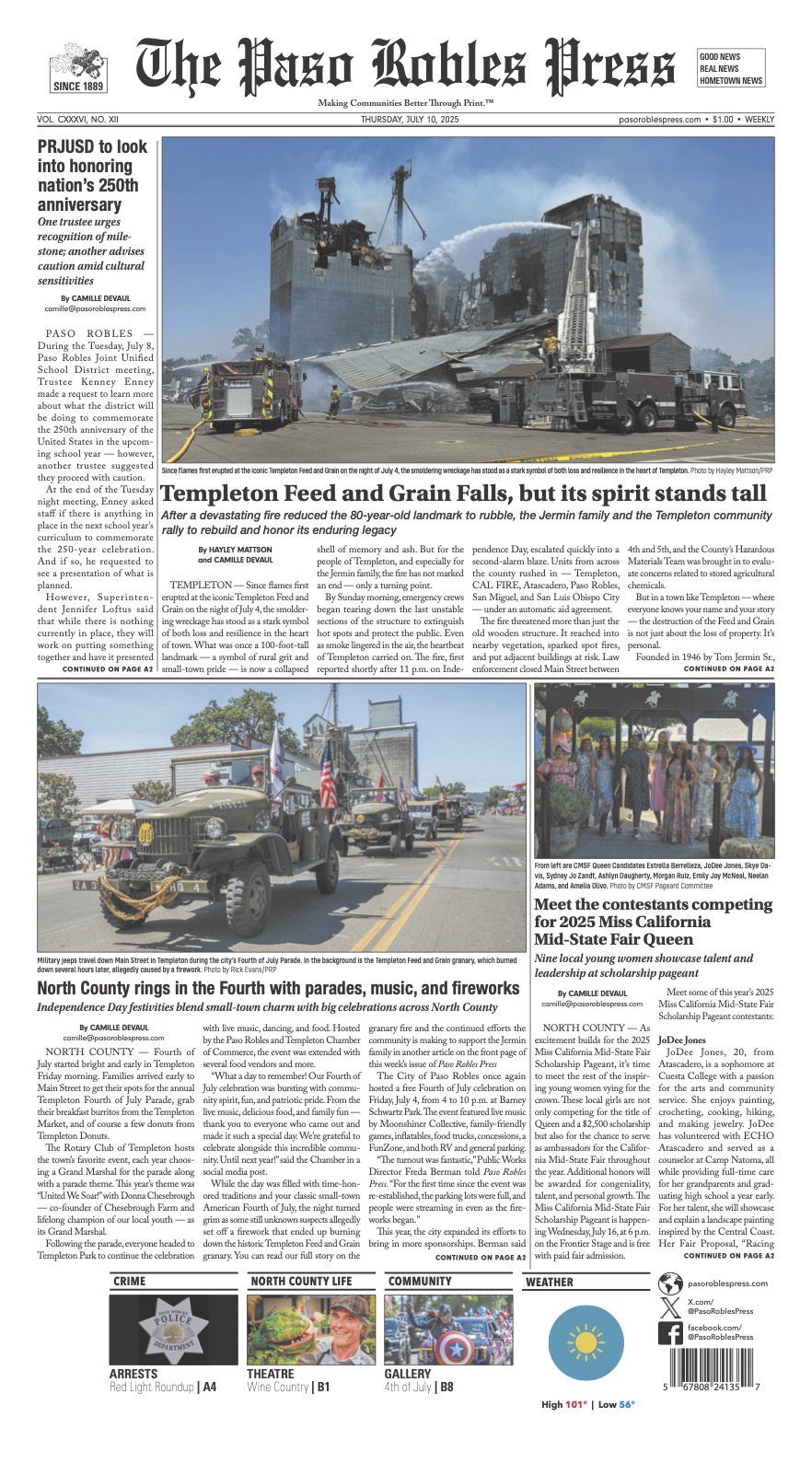The hard-working Nashville quartet gallops onto the Frontier Stage this summer at the Mid-State Fair
There’s no one correct way to forge a successful career in the music industry, although possessing certain qualities gives artists a head start. Ambition is a must—as is grit, a penchant for hard work and staying positive. Being committed to creative forward motion is also key, as bands that are continually challenging themselves musically often land in exciting new places.
A Thousand Horses check all these boxes, as might be obvious from the title of their second full-length, Let The Band Play On. In the last half-decade, the Nashville quartet—vocalist Michael Hobby, guitarists Bill Satcher and Zach Brown, and bassist Graham DeLoach—has landed a Billboard country airplay No. 1
single (the platinum-certified “Smoke”) and a debut album (2015’s Southernality) that peaked in the top 20 of the Billboard Top 200.
The self-assured Let The Band Play On builds on this momentum. Although the album certainly maintains familiar A Thousand Horses influences—”Carry Me” is a sonic homage to the Black Crowes, while “Livin’
My Best Life” echoes John Mellencamp’s hits-filled ’80s heyday and “Drinking Song” is a soulful country rocker—it also boasts crisp songwriting that resists pigeonholing.
“When we have songs that we think are awesome, the best thing we can do for ourselves is make a record,” says Zach Brown. “The idea is always just keep moving forward, keep making music and keep pressing on.”
Accordingly, Let The Band Play On is a fresh, contemporary spin on gospel-tinged heartland rock, barnstorming country, bar-band anthems, and even retro classic rock — highlighted by the midtempo ballads “Startin’ Fires” and “Define Me,” both of which boast intricate electric guitar bursts; the twangy
’90s alt-country throwback “Don’t Stop”; and the bluesy hard rock stomp “My Time’s Comin’.”
“We didn’t want to put any kind of rules on the music,” Brown says. “We were trying to come up with the best collection of songs—whatever that meant. It was like, ‘Let’s just create what naturally comes out, the best songs possible, and then see what happens.’ We were trying not to be too concerned with, ‘How is this going to be marketed? What is this genre?'”
Adds Hobby: “You always try to beat your past work—get better songs, better singing, better songwriting, better playing. We wanted this to feel like a classic, timeless record with great songs. I think you can hear how much fun we had making it.”
Let The Band Play On is also something of a professional full-circle moment for A Thousand Horses. The album was produced by Grammy-winning producer Dave Cobb (Jason Isbell, Brandi Carlile), who also
oversaw the group’s self-titled 2010 EP and 2015 full-length debut, Southernality. To strengthen this professional relationship even further, A Thousand Horses signed to Cobb’s Low Country Sound imprint on Elektra Records to release Let The Band Play On.
“Dave’s been a long-time supporter of the band,” Brown says. “He’s always really believed in us and gets our vision, and always has. I mean, we named our band in his studio 10 years ago. It’s amazing this journey we’ve had with him.” Adds Satcher: “Dave is a brother. It’s great to get in there and make records with your friends. He is like an additional member of the band in that situation.”
Appropriately, to record Let The Band Play On, the members of A Thousand Horses hunkered down and spent three weeks with just Cobb in the producer’s home base, the legendary RCA Studio A. “I know a lot of people do this differently, and may track at different places and different times,” Brown says. “But for us, it works the best when all four of us can all get together and make that magic.”
The recording process started out with a group approach, with all four members sitting in the studio lounge playing through prospective songs acoustically, to work out arrangements, instrumentation and a
sonic direction. A Thousand Horses then tracked these songs several times, until they landed the perfect take—a testament to their desire to put forth their best work.
“I know for me personally—and I know Bill is like this too—we’re always thinking, ‘Did we do it the best we could have done it?'” Brown says. “Or ‘What about this guitar part—could we play this better?'”
That attention to detail extends to A Thousand Horses’ lyrics. At its core, Let The Band Play On is an optimistic record: “My Time’s Comin'” is a pep talk to someone facing adversity, while “Livin’ My Best Life” and “Drinking Song” extoll the virtues of letting loose, feeling good and embracing joie de vivre.
“It’s our stories in our life that we put to paper,” Hobby admits. “There’s a little bit of heartbreak on the album, although a lot less than it used to be. We all are married, I just had a child, and we’re happy in our love lives, so it’s hard to write about a breakup when you’re not going through one.”
Accordingly, Let The Band Play On’s songs focus on gratitude for a supportive partner (“Every Time You Love Me”) or embrace the passion of an on-and-off relationship (“Don’t Stop Breaking My Heart,” which Hobby co-wrote with Angelo Petraglia and Jonathon Singleton). Satcher notes “Define Me,” co-written with Hobby and Lee Thomas Miller, is “a love letter to my wife” that praises her many virtues: “You’re the streetlight in the dark on a road that runs forever/ Under a midnight sky with no headlights.”
When people listen to your songs, maybe they see a piece of themselves—or, as a songwriter, you hope they do,” Satcher says. “Even when you’re collaborating together, you each kind of are drawing from your own personal experiences. Musically, I love the vibe of that song and how it builds and grows.”
However, Let The Band Play On does dabble in moodier moments. “Carry Me” features a narrator who’s ready to let a toxic ex go, but can’t resist getting in a few parting digs (“Sorry’s a word that only you describe”), while “Broken Heartland,” co-written with Singleton and the late Andrew Dorff, is a
sympathetic portrayal of lonely people looking to forge connections. “Never Liked The Rain,” meanwhile, is a deeply personal song for Hobby, as it was inspired by him leaving South Carolina and moving to Tennessee to get away from a souring relationship.
“You always want to try to keep things relatable,” Hobby says. “We’re all the same at the end of the day. We all go through the same hardships and successes; it’s just what we all live through. We’re trying to make sure listeners take their own story of how they feel away from the songs. It’s not going to be exactly the same story as mine, but if a song makes them feel something, then we’ve been successful.”
A Thousand Horses formed in 2010, although their roots date back to the mid-’00s, when childhood friends Hobby and Satcher started writing songs together in South Carolina. DeLoach (who happens to be Satcher’s cousin) joined soon after, as did Georgia native Brown. Over the last decade, the group has
toured with artists such as Jason Aldean and Lynyrd Skynyrd and earned two top 40 hits overall on Billboard’s Hot Country songs chart, including “Smoke,” which reached No. 1, and “(This Ain’t No) Drunk Dial.”
Over the last decade, A Thousand Horses have also figured out what they don’t want—and made great strides in preserving what’s important to the band.
“You can get caught in traps in this business where people try to change you and put you in the room with people that you don’t want to be in the room with, and do things and push things,” Hobby says. “And they’re just interrupting the frequency of exactly who you are. You can get lost really easy creatively, you can get uninspired; and you can just get lost in your whole entire thing and not know who you are. We wanted to express to people exactly who we are through this album.”
In other words, A Thousand Horses are very much looking forward to reintroducing themselves with the release of Let The Band Play On and now, more than ever, aren’t taking anything for granted. “We were
in a good place for making a record,” Brown says. “We were rested and ready and looking forward to it and everyone had a super-positive vibe, and everything really did come together and fall into place with all of the elements. We were living the dream doing that.”
“We’ve always been positive guys, always glass-half-full,” Hobby adds. “We get to play music for a living and like be in a band and travel the world and write songs and play. To me that’s the best thing in the world. We’re lucky enough to get to do that.”

